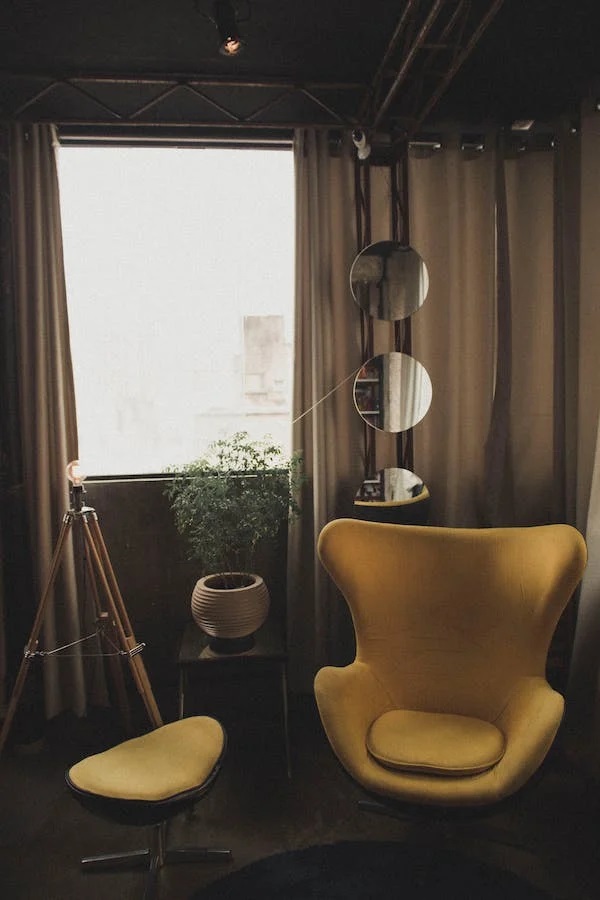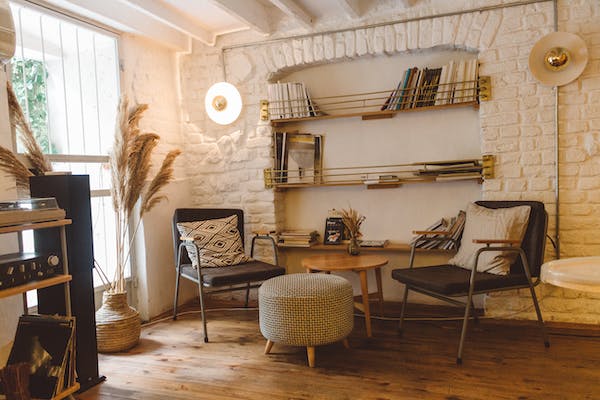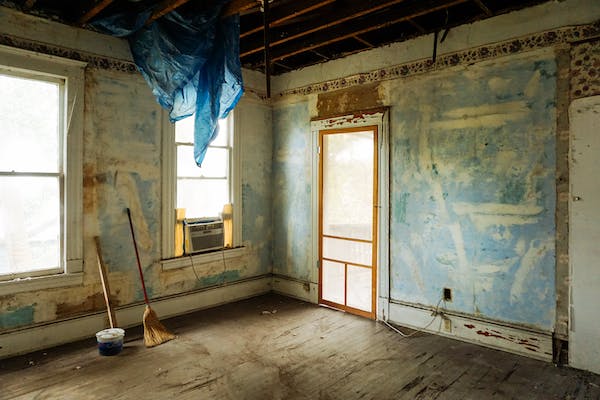The Pros and Cons of Buying a Fixer-Upper: Is It Right for You?
Have you considered buying a fixer-upper? While it may seem daunting to take on a project of this magnitude, there are both pros and cons to consider when buying a fixer-upper. In this blog post, we'll explore the benefits and drawbacks of purchasing a property that needs some TLC, so you can determine if it's the right choice for you. From potential cost savings to unexpected expenses, let's dive into everything you need to know about buying a fixer-upper!
What is a Fixer-Upper?
There are two types of people in the world: those who love a good fixer-upper, and those who don’t. For the uninitiated, a fixer-upper is a property that needs some work – usually cosmetic fixes like painting, new carpeting or flooring, and perhaps some updating in the kitchen and bathrooms.Fixer-uppers can be a great deal if you find the right one. But they can also be a money pit if you’re not careful. So how do you know if buying a fixer-upper is right for you? Here are some things to consider:
The first thing you need to do is figure out what kind of fixer-upper you’re looking at. Is it a total gut job? Or just a few cosmetic updates? The amount of work needed will have a big impact on the cost and your ability to do the work yourself.
Next, you need to consider your finances. Can you afford to buy a fixer-upper and make all the necessary repairs? If not, you may want to reconsider or look for a different property.
Another thing to think about is your timeline. Are you looking for a quick flip or are you willing to take your time and do some of the work yourself? If you need to sell quickly, buying a fixer-upper may not be the best option since it could take longer to make all the necessary repairs.
Pros of Buying a Fixer-Upper
If you're considering purchasing a fixer-upper, there are several pros to taking on this type of project. First, you can generally purchase a fixer-upper for less than the cost of a move-in ready home. This can be a great way to get more house for your money. Additionally, you may be able to find a fixer-upper in the neighborhood you desire but couldn't otherwise afford.
Another pro of buying a fixer-upper is that you can customize the home to your specific taste and needs. You'll have the opportunity to select everything from the finishes to the fixtures, making it truly your own. As the owner of a fixer-upper, you'll have increased equity in the home as you complete renovations.
Of course, there are also some cons to purchasing a fixer-upper. One is that it will likely take longer and cost more to complete all necessary renovations than you initially anticipate. Additionally, living in a construction zone can be messy and disruptive. It's important to be realistic about both the time and financial commitment required before taking on a fixer-upper project.
Cons of Buying a Fixer-Upper
If you're considering buying a fixer-upper, there are a few things you should keep in mind. While there are certainly some pros to purchasing a fixer-upper, there are also some cons that you should be aware of before making your decision.
One of the biggest cons of buying a fixer-upper is the cost. Not only will you have to pay for the purchase price of the home, but you'll also need to budget for repairs and renovations. This can quickly add up, and if you're not careful, you could end up spending more than you intended.
Another con of buying a fixer-upper is the time commitment. Unlike buying a brand new home that's move-in ready, purchasing a fixer-upper means that you'll likely have to spend considerable time and effort getting it into shape. If you're not prepared for this, it could end up being a frustrating experience.
Keep in mind that even after all the work is done, your fixer-upper may not be worth as much as a brand new home. So, if you're planning on selling in the future, it's important to factor this into your decision.
There are both pros and cons to consider when deciding whether or not to buy a fixer-upper. Weighing all of these factors will help you make the best decision for your individual situation.
Costs Involved in Renovating a Fixer-Upper
If you're considering buying a fixer-upper, it's important to be aware of the potential costs involved. While the purchase price of a fixer-upper may be lower than that of a move-in ready home, the cost of renovations can quickly add up.
Here are some common costs to keep in mind when renovating a fixer-upper:
• Construction costs: These can include materials, labor, permits, and more.
• Architectural fees: If you plan on making major changes to the home's layout, you may need to hire an architect.
• Engineering fees: Similar to architectural fees, if you're making major structural changes to the home, you may need to hire an engineer.
• Utility hookups: Depending on the scope of your renovation project, you may need to pay for new water, gas, and/or electrical service.
• Finishings: Once the major construction is complete, you'll need to add finishing touches like flooring, fixtures, paint, etc.
Tips for Finding the Right Property
There are a few key things to keep in mind when searching for the right property, whether you're looking for a fixer-upper or not. First, consider your budget and what you can realistically afford. It's important to have a clear idea of your financial limitations from the start. Second, think about your needs and wants in a home and make a list of must-haves versus nice-to-haves. This will help you narrow down your search. Third, pay attention to location. A fixer-upper in a desirable neighbourhood will likely be a better investment than one in an up-and-coming area that's not quite there yet. And finally, don't forget to factor in the cost of renovations when considering a fixer-upper. It's important to have a realistic idea of how much work needs to be done and how much it will cost before making an offer on a property.
How to Estimate Renovation Costs
Before you start any home renovation project, it is important to have a clear understanding of the costs associated with the project. The best way to do this is to get an estimate from a contractor or other professional in the industry. However, if you are doing your own research and trying to estimate the costs yourself, there are a few things you should keep in mind.
First, consider the scope of the project. How much work will need to be done? Are you just painting walls or are you gutting the kitchen and starting from scratch? The more work that needs to be done, the higher the costs will be.
Next, think about the materials you will need. If you are planning on using high-end materials, such as granite countertops or custom cabinets, your costs will be higher than if you use more standard materials. Similarly, if you need to purchase new appliances or fixtures, those will add to your bottom line as well.
Don't forget to factor in labor costs. If you are doing some of the work yourself, your labor costs will be lower than if you hire professionals for everything. However, even if you are doing some of the work yourself, there may be certain aspects of the job that require professional help (such as electrical work). Make sure to factor in these additional costs when estimating your overall renovation budget.
Other Solutions for Homeownership
There are other options for homeownership besides buying a fixer-upper. Some people opt to buy a new home that is already built and doesn’t need any repairs or renovations. This can be more expensive than buying a fixer-upper, but it may be worth it for some people who don’t want to deal with the hassle of repairs and renovations.
Another option for homeownership is to build a new home from scratch. This can be a very exciting process, but it is also very time-consuming and expensive. If you are considering this option, you will need to factor in the cost of materials, labor, and permits into your budget.
Whatever option you choose for homeownership, make sure that you do your research and consult with experts before making any decisions. Buying a home is a big investment, so you want to make sure that you are making the best decision for your needs and your budget.
Conclusion
In conclusion, buying a fixer-upper can be both exciting and challenging. It’s important to weigh the pros and cons carefully before making this type of purchase, as it is not right for everyone. If you are willing to take on the task of renovating an older home or property, with enough patience and hard work you can turn a fixer-upper into your dream home.






